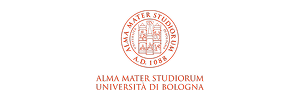Funded under the National Recovery and Resilience Plan (NRRP), Mission 4 Component 2 Investment 1.3, Theme 10.
Alma Mater Studiorum – Università di Bologna
Alma Mater Studiorum – Università di Bologna
Highlights
Alma Mater Studiorum – Università di Bologna (UNIBO), was founded in 1088 and is the oldest university in Western Europe.
Nowadays, it remains one of the most important institutions of higher education across Europe. UNIBO is one of the largest and most active Italian universities in research and innovation. UNIBO is organised in a multi-campus structure (Bologna, Cesena, Forlì, Ravenna and Rimini), with 3 Departments and 5 Schools.
Leader of the spoke
Policy, behaviour and education
Smarter behaviors for healthier diets
Participant in the spoke
Leader of the work package
People involved

Alessandra Bendini
Associate Professor
Alessandra Bordoni
Alessandra Gambineri
Andrea Segre'
Arianna Lazzari
Arrigo Francesco Giuseppe Cicero
Chiara Cevoli
Elena Tomba
Fausto Gardini
Flaminia Fanelli
Francesca Danesi
Francesco Capozzi
Giovanna Guerzoni
Giovanni Barbara
Luca Falasconi
Luca Trapin
Lucia Vannini
Marco Dalla Rosa
Mario Mazzocchi
Matteo Gherardi
Matteo Masotti
PhD in agrifood economics and statistics

Matteo Vittuari
Associate Professor, Department of Agricultural and Food Sciences Delegate for Cooperation and Development
Patrizia Brigidi
Pietro Rocculi
Riccardo Accorsi
Riccardo Manzini
Rosalba Lanciotti
Santina Romani
Sara Capacci
Sara Gostoli
Urszula Tylewicz



